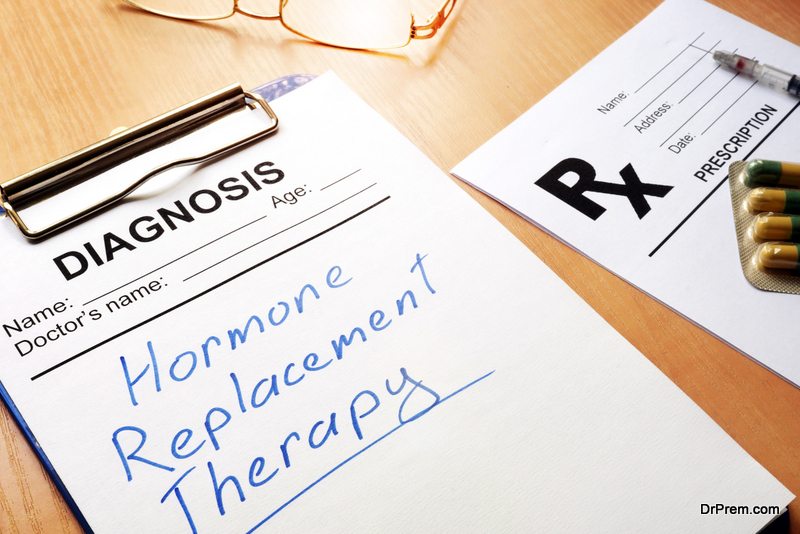According to the World Health Organization, about 30 percent of the world is anemic, and an overwhelming majority suffers from iron deficiency anemia in particular. Iron deficiency is the most common nutritional deficiency in the world, but it’s also the most treatable. First you need to understand iron deficiency anemia, and then we’ll cover some hormone replacement therapy benefits and risks to see if it is the right treatment for your situation.
What is Iron Deficiency Anemia?
 Iron deficiency anemia is a lack of healthy red blood cells due to low amounts of Iron in the blood stream. Hemoglobin, the substance in blood that carries oxygen, relies on Iron for synthesis. This lack of oxygen in the bloodstream can lead to all types of health problems, such as:
Iron deficiency anemia is a lack of healthy red blood cells due to low amounts of Iron in the blood stream. Hemoglobin, the substance in blood that carries oxygen, relies on Iron for synthesis. This lack of oxygen in the bloodstream can lead to all types of health problems, such as:
- Heart enlargement and failure
- Pregnancy issues and premature births
- Stunted development in children
You should get tested for Iron deficiency anemia if you show the following iron deficiency symptoms:
- Suppressed appetite
- Shortness of breath
- Extreme weakness and fatigue
- Irritability
- Headaches
- Cold and pale skin
- Fragile nails
It is obvious this condition is caused by a lack of iron, but what causes the body to lack iron?
One of the most common iron deficiency anemia causes is an inability of the body to absorb iron. Our body normally gets iron from our foods, but some people can’t extract the iron they need to produce a healthy amount of hemoglobin. Another related cause is lack of iron in the diet. Eggs, meat, and leafy greens are all great sources of iron and should be a core part of your diet.
Including more iron in your diet taking iron supplements are two ways you can treat iron deficiency, but for some people this isn’t enough. Sometimes iron deficiency anemia comes from reduction in hormone levels. If you fall into this category, hormone replacement therapy is for you.
How does Hormone Replacement Therapy Work?
 Hormones are the human body’s regulatory chemicals. The various hormones in our body keep our systems running at optimal efficiency. As we age, our body becomes less effective at producing hormones, which make our systems run less effectively. We lose our sex drives, suffer mood instability, have less energy, and and gain weight. Hormone replacement therapy does exactly what it sounds like it does – counters the loss of hormones by replacing them, usually through a patch or pill.
Hormones are the human body’s regulatory chemicals. The various hormones in our body keep our systems running at optimal efficiency. As we age, our body becomes less effective at producing hormones, which make our systems run less effectively. We lose our sex drives, suffer mood instability, have less energy, and and gain weight. Hormone replacement therapy does exactly what it sounds like it does – counters the loss of hormones by replacing them, usually through a patch or pill.
Research has shown low testosterone levels to be one of the primary causes in age-related iron deficiency anemia. A 2017 study published in JAMA Internal Medicine showed that 58 percent of anemic older men were no longer anemic after 12 months of treatment, compared with only 22.2 percent of men treated with a placebo. This data shows how hormone replacement therapy, among other things, is a successful treatment for iron deficiency anemia.
There are two different forms of hormone replacement therapy, with the main difference being how the hormones are created. Synthetic hormones are created from sources beyond the human body. They are designed to mimic the body’s natural hormones, but their impurities make them less effective and more likely to cause side effects.
Bio-identical hormones come from all-natural sources, typically from plants, and are designed to sync with your endocrine system. Bio-identical hormone replacement therapy helps minimize risks, which we’ll be discussing now.
What are the Benefits and Risks of Hormone Replacement Therapy?
One big benefit of hormone replacement therapy for iron deficiency is it will address many other areas of discomfort. In addition to raising iron levels, increasing the testosterone levels of a man also increases his:
- Libido
- Stamina
- Happiness
- Strength
Having more strength and stamina allows you to have the energy to go to the gym, which gives you incentive to change your diet. By consuming more meat and protein, you will naturally supplement the hormone replacement therapy with an iron-rich diet.
When it comes to hormone replacement therapy risks, they are rare but can be serious. Blood clot or stroke can occur when combined with certain medications. Breast cancer has also occurred in patients in rare cases, but there is debate as to whether the hormone treatment was the cause. Many of these risks are drastically reduced when bio-identical hormones are used over synthetic hormones. Hormone replacement therapy also helps in weight management especially for older women.
The bottom line is the benefits of hormone replacement therapy far outweigh the risks. If you suffer from iron deficiency anemia, you need to schedule a hormone test with a hormone therapy replacement center today.
Article Submitted By Community Writer





